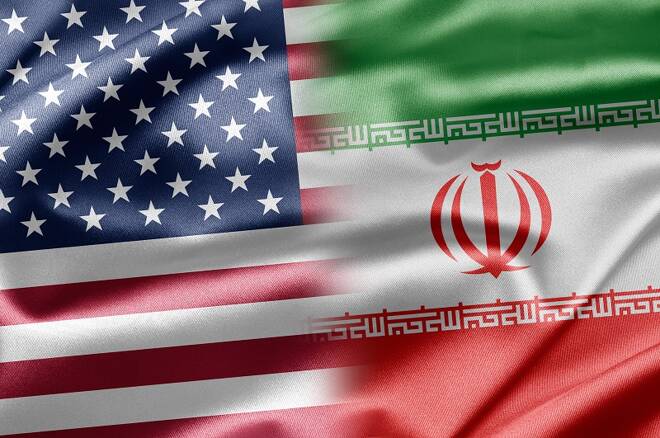Advertisement
Advertisement
Waiting Game Begins as U.S. Pulls Out of Iran Deal, but Delays Reimposition of Sanctions
By:
Since Trump refrained from announcing the immediate start of sanctions against Iran, some are saying there is still room for compromise. They believe that Trump may pull out of the deal without reimposing the sanctions. By delaying the sanctions for 90 to 180 days, it gives some of the United States allies a chance to rework the deal or make arrangements with Iran and the allies themselves.
In a widely anticipated move by crude oil speculators, President Donald Trump announced Tuesday afternoon that he will withdraw the United States from the Iran nuclear deal and restore sanctions on the nation suspended under the 2015 accord.
Trump said he will reimpose sanctions on Iran, although he offered no evidence that Tehran has violated the terms of the nuclear deal. Congressional sources tell CNBC the administration plans to wind down various aspects of the deal over 90- or 180-day periods.
“We will be instituting the highest level of economic sanction,” Trump said. “Any nation that helps Iran in its quest for nuclear weapons could be strongly sanctioned by the United States.”
Exiting the deal may have fulfilled one of Trump’s campaign promises, but now Trump faces possible strains in U.S. relations with some of its closest allies especially in Europe. Additionally, the move could also cause crude oil supply disruptions at a time when supplies are tightening. Furthermore, the move also gives Iran the option of expelling inspectors and resuming nuclear activity that it has agreed to suspend.
In addition to the United States, the deal was also agreed to by economic powerhouses China, France, Germany, Russia and the United Kingdom. In opting out of the deal, Trump risks creating the diplomatic and economic uncertainties with the United States.
Since Trump refrained from announcing the immediate start of sanctions against Iran, some are saying there is still room for compromise. They believe that Trump may pull out of the deal without reimposing the sanctions. By delaying the sanctions for 90 to 180 days, it gives some of the United States allies a chance to rework the deal or make arrangements with Iran and the allies themselves.
Once the 90 to 180 “grace” period passes, the U.S. could choose to wield its power over the global financial system on those who aren’t on its side and move to implement the sanctions. The Treasury Department, for instance, can lock foreign businesses out of the U.S. market if they refuse to comply with sanctions on Iran.
As far as the markets are concerned, crude oil recovered a little from earlier losses after Trump’s announcement, but traders are still being driven by uncertainty because the impact of renewed sanctions on oil flows will depend in part on how Washington chooses to implement them.
Analysts are saying that the lack of international support for renewed U.S. sanctions means the measures will likely only remove 300,000 to 500,000 barrels a day of Iranian crude from the market versus a possible 1 million to 1.5 million barrels a day if all of the nations that signed the deal decide to impose tariffs.
The Dow dropped about 150 points on the announcement, but has since then clawed back most of those losses. Additionally, there are reports that Boeing may lose $20 billion in aircraft deals because of Trump’s decision.
About the Author
James Hyerczykauthor
James Hyerczyk is a U.S. based seasoned technical analyst and educator with over 40 years of experience in market analysis and trading, specializing in chart patterns and price movement. He is the author of two books on technical analysis and has a background in both futures and stock markets.
Advertisement
